Our lessons
Our Core Objectives
Library Carpentry workshops teach people working in library- and information-related roles how to:
- Cut through the jargon terms and phrases of software development and data science and apply concepts from these fields in library tasks;
- Identify and use best practice in data structures;
- Learn how to programmatically transform and map data from one form to another;
- Work effectively with researchers, IT, and systems colleagues;
- Automate repetitive, error prone tasks.
Our Core Curriculum
Our Core Curriculum consists of the lessons in the table below. These have been taught many times, and have been further refined after instructor and learner feedback. For more information regarding core lessons and workshops, see Our Workshops.
The lessons introduce terms, phrases, and concepts in software development and data science, how to best work with data structures, and use regular expressions in searches. We introduce the Unix-style command line interface, andteach basic shell navigation, as well as the use of `loops` and pipes for linking shell commands. We also introduce `grep` for searching and subsetting data across files. Exercises cover the counting and mining of data. In addition, we cover working with OpenRefine to transform and clean data, and the benefits of working collaboratively via Git/GitHub and using version control to track your work.
Lessons
Extended Curriculum
The following Library Carpentry lessons can also be taught in addition to our core curriculum. These lessons have been taught infrequently and still need further work. We would value any feedback on these lessons.
Lessons
Experimental Curriculum
The following Etherpad contains Library Carpentry experimental lessons that are currently being discussed and/or under development.
Lessons Under Development
Lesson Status
Our lessons are in various stages of development - stable, beta, alpha, and conceptual.
Stable
These lessons are mature and ready to be taught. Most have been taught multiple times. The content is well-established, but minor changes and improvements (e.g. better explanations, spelling/grammar corrections, improved exercises) are always welcome.
Beta
These lessons are largely complete and should be ready to teach, but would benefit from improvements based on feedback from instructors who have taught them. New sections and rewrites/reorganisations of existing sections will be considered.
Alpha
These lessons are under active development and may not be ready to teach without additional preparation and background knowledge. Further development work is strongly encouraged - please get in touch or check out outstanding issues on GitHub to find out what is needed.
Conceptual
These lessons are still in the conceptual phase where community members have just started to discuss general ideas , learner profiles, goals, summative and fomative assessments, concept maps, software and data to be used, how long the lesson should be, and connecting the dots before moving to the alpha phase.
Contributing to Lessons
All contributions are welcome. The level of work may vary depending on the status of the lesson. We recommend that you @mention the Maintainers of the lesson if you are picking up the tasks described in one of the open lesson issues or pull requests.
Lesson Development Process
Our recommended process for developing a new lesson is as follows:
- Develop the initial content on GitHub using the Carpentries' set up instructions for new lessons. New lessons are built from clones of this repo.
- Introduce yourself and the lesson on our Gitter channel or Topicbox list — there may well be willing volunteers to help with the content.
- Teach the lesson, collect feedback, and perhaps raise issues or pull requests to improve the content.
- Propose your lesson for the incubator by making a pull request (PR) against the Library Carpentry website, adding a link to your lesson repository as an alpha lesson.
- Discuss the lesson with the community and, if necessary, offer suggestions on how to improve the lesson; if the lesson is considered suitable material for the Library Carpentry curriculum, a website maintainer will merge your PR into the main site
- You and others will teach the lesson, collect feedback, and improve the content.
- Propose your lesson for beta/stable by making a pull request against the Library Carpentry website, updating the status of your lesson.
- Discuss the lesson further with the community; when the lesson is ready, a website maintainer will merge your pull request(PR).
- Congratulations! Your lesson is now part of stable Library Carpentry!
New Lesson Expectations
In order to maintain consistent quality and style in the Library Carpentry lessons, we have a community-driven set of expectations for what a good lesson should look like. These should guide the review process at steps 5 and 8 above. Lesson developers and reviewers should also review The Carpentries Handbook, especially the section on Lesson Development and consult with the Curriculum Advisory Committee.
All stable lessons should:
- have at least three active Maintainers.
- include a short learner profile (i.e. who the lesson is designed for).
- include concrete learning objectives.
- be teachable in around three hours under normal circumstances.
